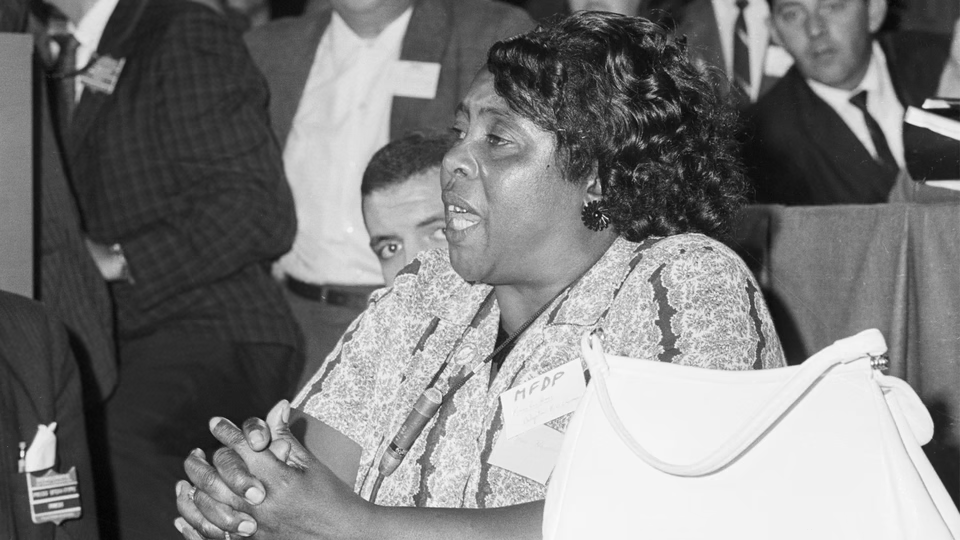In the grand theater of American politics, few moments are as poignant as when the past and present converge to illuminate the path forward. Such was the case at this year’s Democratic National Convention, where the indomitable Maxine Waters took the stage to deliver a powerful address that bridged generations of civil rights advocacy.
Waters, a stalwart champion of equality, transported us back to 1964 – a year that would prove pivotal in the long struggle for civil rights. At that year’s Democratic Convention in Atlantic City, a courageous group of black delegates from Mississippi, led by the incomparable Fannie Lou Hamer, dared to challenge the entrenched racism of the time.

At the 1964 Democratic National Convention, Hamer testified to the credentials committee, calling for her Mississippi Freedom Democratic Party to be integrated with the state’s all-white delegation. Her speech included the famous question, “Is this America, the land of the free and the home of the brave, where we have to sleep with our telephones off the hooks because our lives be threatened daily, because we want to live as decent human beings, in America?
Hamer’s request was simple yet revolutionary: to seat her delegation in place of the state’s all-white contingent. Her testimony of the brutal violence she endured at the hands of white police – punishment for the “crime” of demanding her right to vote – sent shockwaves through the nation. “Is this America?” she asked, her words a damning indictment of a country failing to live up to its ideals.
While Hamer’s immediate goal went unrealized in Atlantic City, her unwavering resolve bore fruit. Just four years later, she stood proudly among the official Mississippi delegation at the 1968 convention – a testament to the power of persistence in the face of injustice.
Now, as we stand at another crossroads in our nation’s history, Waters sees a new torchbearer ready to lead us forward. In Kamala Harris, we find a leader whose career has been defined by shattering glass ceilings: from courtroom prosecutor to district attorney, from attorney general to United States Senator, and now to the office of Vice President.

It is no coincidence that Harris counts Fannie Lou Hamer among her personal heroes. The thread of progress that runs from Hamer’s courageous stand to Harris’s historic ascendance is undeniable. As Waters confidently asserted, when Harris assumes the presidency, she will carry forward the torch lit by those who came before her.
In closing her remarks, Waters challenged all Americans to once again ask themselves, “Is this America?” But this time, she proclaimed, we can answer with pride and conviction: “You’re damn right it is!”
This powerful declaration serves as both a celebration of how far we’ve come and a rallying cry for the work that remains. It reminds us that while the arc of the moral universe may indeed bend toward justice, it is our responsibility to keep bending it.
As we reflect on Waters’ words and the legacy of those who fought for equality before us, let us recommit ourselves to the ongoing struggle for a more perfect union. For in this America – an America that can elevate leaders like Kamala Harris to its highest offices – we find not just hope for the future, but a call to action for all who believe in the promise of true democracy.




